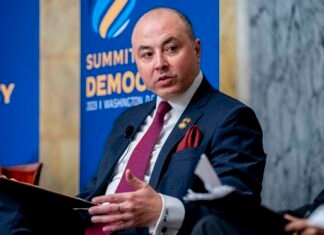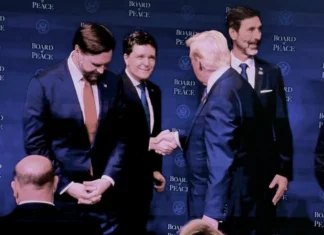Cristian Diaconescu recently shared insights regarding the Visa Waiver program, emphasizing the need to reevaluate various facets related to migration and asylum policies. He observed that the United States is leaning toward a more stringent approach in these areas, which could have implications for countries seeking participation in the Visa Waiver initiative.
Diaconescu pointed out that the conversation surrounding Visa Waiver extends beyond mere logistical concerns. It encompasses a broader spectrum of immigration challenges that many countries, including Romania, face. The U.S. government is currently sifting through its policies, indicating a potential shift toward more rigorous criteria. This reexamination is particularly critical as it pertains to a country’s adherence to immigration guidelines and the management of asylum requests.
While engaging in this discussion, Diaconescu made it clear that he has not received any specific signals indicating that Romania is under any punitive measures concerning the Visa Waiver program. His remarks suggest a belief that such considerations will remain on the table, but they should not be misconstrued as an outright threat or punishment against Romania. Instead, the focus appears to be on enhancing compliance and ensuring that participating countries can effectively manage their migration flows.
The Visa Waiver program plays a crucial role in facilitating travel and promoting connections between the U.S. and participating countries. For Romania, being part of this program is not just about easing travel; it is also about international relations and fostering stronger economic ties. Diaconescu’s perspective underscores the importance of maintaining open lines of communication between Romania and the U.S. as they navigate these changing policies.
The current geopolitical climate adds another layer of complexity to these discussions. As countries adapt to changing migration patterns, the U.S. may recalibrate its approach to immigration to better respond to contemporary challenges. This could include stricter vetting procedures and a more thorough evaluation of countries eligible for the Visa Waiver program.
In assessing the implications of these potential changes, Diaconescu highlights the significance of countries like Romania working closely with American counterparts to ensure that their applications for inclusion in the program are robust and meet the new standards. Building trust, demonstrating effective migration management, and adapting to evolving criteria will be essential for Romania to achieve its goals regarding the Visa Waiver.
In conclusion, the discussion surrounding the Visa Waiver program is layered and intricate, with significant implications for countries like Romania. Cristian Diaconescu’s insights shed light on the necessity for reassessment of migration policies in light of shifting American priorities. His comments not only inform about the current state of affairs but also encourage a proactive approach to bolster Romania’s standing within the Visa Waiver framework. As both nations continue to navigate these challenges, the commitment to mutual cooperation will be vital in shaping a future that honors the ideals of travel, trade, and cultural exchange.






